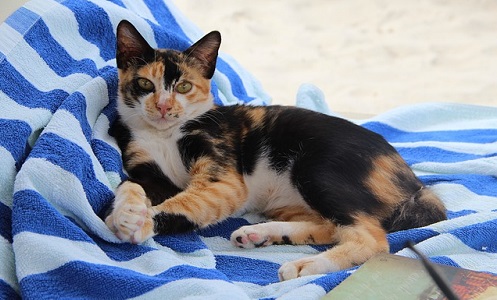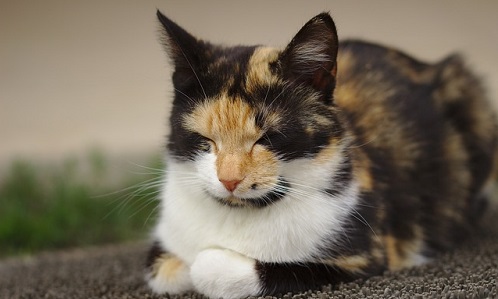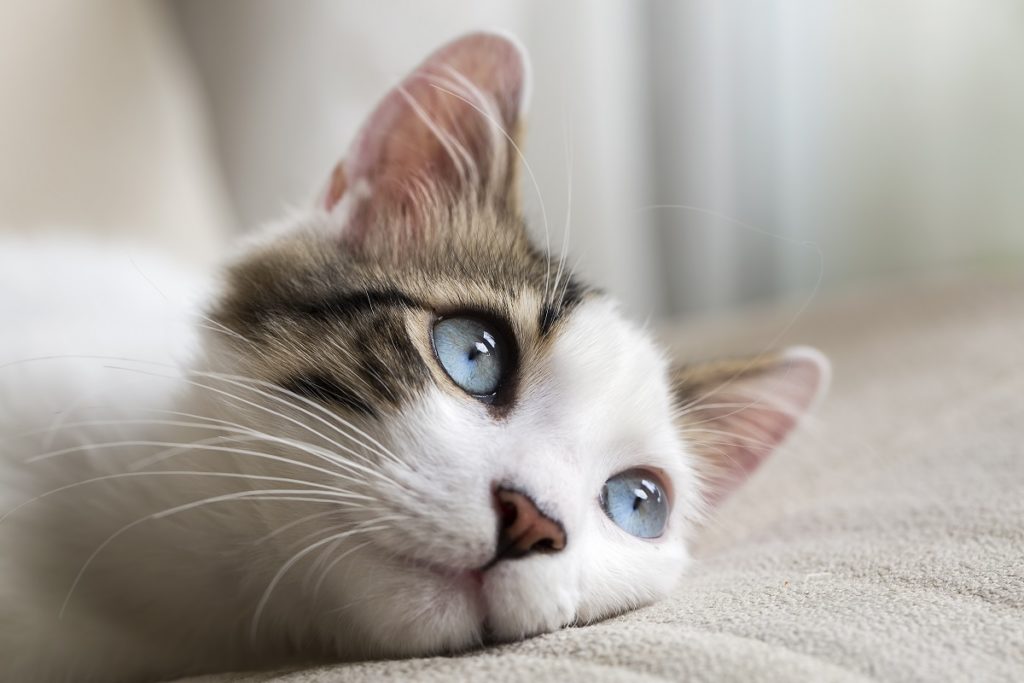Oh no! Bring out the carpet cleaner and call the vet. It’s never fun to see your kitty ill or have to clean up after him for that matter. Of course, seeing your cat vomiting is always going to raise some concerns in your mind as well as questions like, “what I do?” There’s going to be instances when your cat’s vomit is fairly easy to treat and not a major problem. However, there’s also going to be situations that require medical attention and professional treatment from your veterinarian.
This article will identify various situations that could be causing your cat to vomit food and what you can do to prevent and eventually treat the illness. There may be some extenuating circumstances such as if you see blood in your cat’s vomit or if you realize he’s ingested a poisonous plant that will require immediate attention. Those situations are rare, though.
Causes
 There are several reasons your cat may be vomiting food. One, in particular, is surely something you’ve encountered before: hairballs. As you may know, when your cat grooms himself, he ingests the hair that usually ends in his stool. If he vomits a hairball, that’s an indicator that you should check in with your vet for possible hairball remedies. It’s also good to keep in mind if your cat vomits hairballs on a constant, regular basis, additional treatment may be needed. Your cat could also be vomiting because of:
There are several reasons your cat may be vomiting food. One, in particular, is surely something you’ve encountered before: hairballs. As you may know, when your cat grooms himself, he ingests the hair that usually ends in his stool. If he vomits a hairball, that’s an indicator that you should check in with your vet for possible hairball remedies. It’s also good to keep in mind if your cat vomits hairballs on a constant, regular basis, additional treatment may be needed. Your cat could also be vomiting because of:
- Eating too fast
- Food allergies
- Poisoning
- Disease (such as kidney or liver)
- Eating inedible items
If you notice your cat vomiting up food, he could be eating too fast or too much. A curious kitty may chew on items that eventually upset his stomach and induce vomiting. Another cause for the reflex of vomiting food could be due to a change in their diet or eating habits. There are differences between wet and dry food, so switching between the two could cause digestion problems for your feline friend.
Another fact that you may not know is that cats can have allergies. An allergic reaction to certain foods can cause your cat to vomit up their meal. If you suspect an allergy is causing your cat’s sickness, you can bring them into the vet to determine the exact food(s) to avoid. Something surprising is that both indoor and outdoor plants can be poisonous to cats and are can become harmful when licking or rubbing up against the plant. Before introducing a plant into your home, do your research to make sure it’s pet-friendly.
Prevention
So what can you do if your cat vomited food? Just as there are several different reasons that your cat could be vomiting, there are several different methods of prevention. If it is food that he is vomiting after finishing a meal, the most likely culprit is eating too much, too fast. If he eats too quickly, that food doesn’t digest properly which can spur vomiting up the food. You can experiment with setting out small bowls of food throughout the day, rather than one large bowl.
 With this method, you’re limiting the amount of food your cat can eat in one sitting. And, if you plan to introduce new food into your cat’s diet – do so gradually. This will help to avoid upsetting your cat’s stomach and reduce the possibility that he’ll vomit after eating. Mild cases of vomiting or regurgitation can be treated with the proper adjustments to his diet. Keeping the food choices simple and ensuring hydration is important. Natural remedies and herbal supplements can also aid digestion.
With this method, you’re limiting the amount of food your cat can eat in one sitting. And, if you plan to introduce new food into your cat’s diet – do so gradually. This will help to avoid upsetting your cat’s stomach and reduce the possibility that he’ll vomit after eating. Mild cases of vomiting or regurgitation can be treated with the proper adjustments to his diet. Keeping the food choices simple and ensuring hydration is important. Natural remedies and herbal supplements can also aid digestion.
It’s important to note that your feline could be throwing up food due a more serious concern such as intestinal blockage. If he did indeed ingest something inedible or any non-food item, this could lead to an obstruction that is blocking food from entering the stomach. If your cat is distressed and this continues each time he attempts to eat, visit the vet right away. The vet will determine the location of the blockage, decide if surgery is necessary, and possibly administer IV fluids for any dehydration. And of course, whatever caused the blockage, be sure to take steps to avoid recurrence and remove those items from your pet’s reach.
In the future, you can help to prevent a bowel obstruction and thus the vomiting of undigested food by eliminating the initial problem such as access to objects he is likely to chew or eat. Be sure to keep other potential hazards out of reach and be diligent when playing or walking in open or public areas. All in all, if your cat is vomiting food that hasn’t been properly digested it’s important to investigate and understand if additional measures of treatment are necessary.
Sources:
Becker. “The Most Common Reasons Cats Throw Up.” Healthy Pets Mercola, Mercola.com, www.healthypets.mercola.com/sites/healthypets/archive/2010/11/09/vomitting-pet-cat-health.aspx.
Kelley, Jane A. “Why Is My Cat Vomiting? The Top 6 Reasons.” Catster, 29 June 2017, www.catster.com/lifestyle/why-cats-vomit.
“Why Is My Cat Throwing Up? A Definitive Guide to Cat Vomiting!” CertaPet, 12 Sept. 2018, www.certapet.com/cat-throwing-up/.




